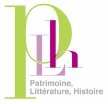-
Partager cette page
Thèse de Eléa Brossier
"Le langage performatif chez Jane Campion : une poétique qui ne se dit pas"
Publié le 22 novembre 2021 – Mis à jour le 24 novembre 2021
Intitulé de la thèse : Le langage performatif chez Jane Campion : une poétique qui ne se dit pas
Co-direction Philippe Ragel et Cristelle Maury, MCF, CAS
Résumé
Les exemples se multiplient dans la filmographie de Jane Campion où un événement annoncé se réalise immédiatement. Définir cet effet de performativité est l’objet de cette thèse, qui sera dirigée par deux axes. Le premier est stylistique : il s’agit d’analyser l’un des marqueurs qui façonnent le style cinématographique de Jane Campion. Le deuxième est théorique : alors que Jane Campion revendique de ne pas expliquer son processus créatif, il s’agira de trouver sous quel angle expliquer cette performativité comme langage. Aussi, mon sujet mène une réflexion nouvelle, qui interroge le langage cinématographique sous l’angle de la performativité, et qui étudie la filmographie de Jane Campion pour ce qu’elle est d’abord, c'est-à-dire une œuvre cinématographique. Une dialectique s’installe dans la mise en place de ce langage, aussi incompréhensible que limpide, aléatoire que déterminé, pouvant être événementiel ou passer inaperçu. Travailler sur la performativité chez Jane Campion revient à révéler une brèche tout contre le récit, c'est-à-dire à la fois en opposition et en support de ce récit. C’est dans cette zone blanche qu’il y a saturation du sens qui mène à une poétique, et c’est précisément cette zone blanche qui sera questionnée.
Résumé en anglais
There are numerous examples in Jane Campion's filmography where an announced event is immediately realised. Defining this effect of performativity is the object of this thesis, which will be leaded by two axes. The first is stylistic: the aim is to analyse one of the markers that shapes Jane Campion's cinematic style. The second is theoretical: while Jane Campion claims not to explain her creative process, it will be a question of finding from which angle to explain this performativity as language. Thus, my subject leads to a new study, one that both questions cinematic language from the angle of performativity, and studies Jane Campion's filmography for what it is first and foremost, i.e. a cinematographic work. A dialectic is established in the setting up of this language, which is at once incomprehensible and clear, random and determined, and can be eventful or unnoticed. To work on performativity in Jane Campion's work is to reveal a gap against the narrative, that is to say, both in opposition to and in support of it. It is in this white zone that there is a saturation of meaning that leads to a poetics, and it is precisely this white zone that will be questioned.
Co-direction Philippe Ragel et Cristelle Maury, MCF, CAS
Résumé
Les exemples se multiplient dans la filmographie de Jane Campion où un événement annoncé se réalise immédiatement. Définir cet effet de performativité est l’objet de cette thèse, qui sera dirigée par deux axes. Le premier est stylistique : il s’agit d’analyser l’un des marqueurs qui façonnent le style cinématographique de Jane Campion. Le deuxième est théorique : alors que Jane Campion revendique de ne pas expliquer son processus créatif, il s’agira de trouver sous quel angle expliquer cette performativité comme langage. Aussi, mon sujet mène une réflexion nouvelle, qui interroge le langage cinématographique sous l’angle de la performativité, et qui étudie la filmographie de Jane Campion pour ce qu’elle est d’abord, c'est-à-dire une œuvre cinématographique. Une dialectique s’installe dans la mise en place de ce langage, aussi incompréhensible que limpide, aléatoire que déterminé, pouvant être événementiel ou passer inaperçu. Travailler sur la performativité chez Jane Campion revient à révéler une brèche tout contre le récit, c'est-à-dire à la fois en opposition et en support de ce récit. C’est dans cette zone blanche qu’il y a saturation du sens qui mène à une poétique, et c’est précisément cette zone blanche qui sera questionnée.
Résumé en anglais
There are numerous examples in Jane Campion's filmography where an announced event is immediately realised. Defining this effect of performativity is the object of this thesis, which will be leaded by two axes. The first is stylistic: the aim is to analyse one of the markers that shapes Jane Campion's cinematic style. The second is theoretical: while Jane Campion claims not to explain her creative process, it will be a question of finding from which angle to explain this performativity as language. Thus, my subject leads to a new study, one that both questions cinematic language from the angle of performativity, and studies Jane Campion's filmography for what it is first and foremost, i.e. a cinematographic work. A dialectic is established in the setting up of this language, which is at once incomprehensible and clear, random and determined, and can be eventful or unnoticed. To work on performativity in Jane Campion's work is to reveal a gap against the narrative, that is to say, both in opposition to and in support of it. It is in this white zone that there is a saturation of meaning that leads to a poetics, and it is precisely this white zone that will be questioned.

